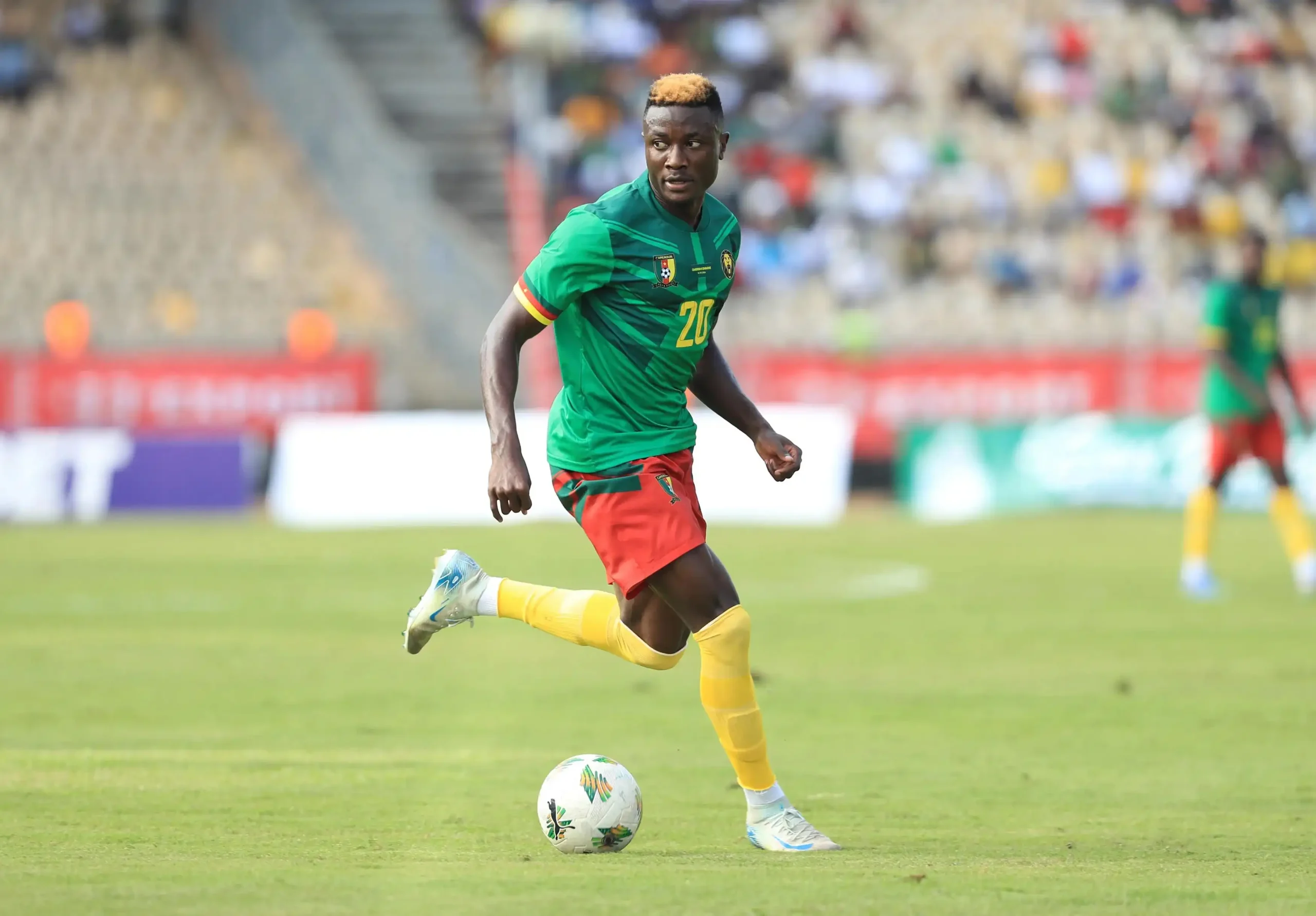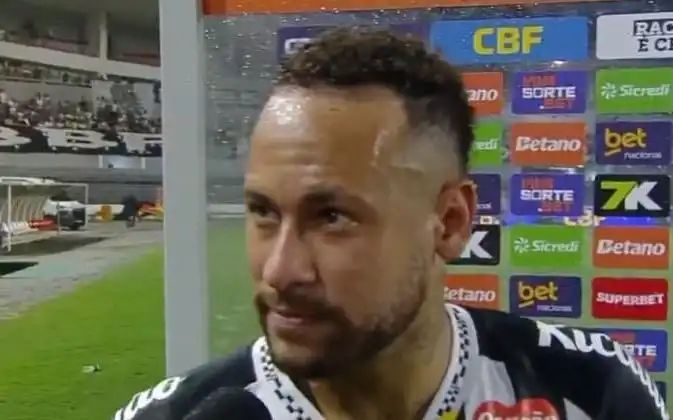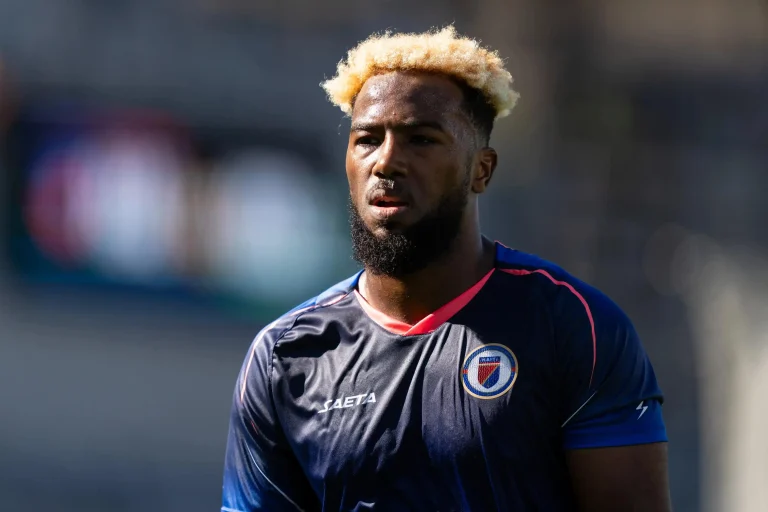In many ways, Patrick Soko’s footballing journey is similar to many other players, however, there is something that makes him stand out. The young Cameroonian was faced with a tough dilemma: he had to choose between sitting a university entrance exam, joining up with his country’s U-17 squad for a training camp, or upping sticks and travelling 9,000 kilometres to pursue his dream of becoming a footballer.
He opted for the hardest route. He bid farewell to his family and friends after Franck Angong, a former classmate, offered him the chance to ply his trade for the Dominican Republic outfit Cibao.
That was Soko’s first life-changing moment. The second came when he got the chance to move from Mexico to Spain. The most recent turning point in his career came when he received his first call-up to the senior Cameroon side less than 12 months ago, at the age of 26.
Soko’s immediate focus is firmly on his country’s upcoming FIFA World Cup 26™ qualifier at home to Eswatini on 4 September and away to Cabo Verde on 9 September. The second fixture will be crucial in deciding who tops Group D, with the winners earning themselves direct qualification for the tournament in Canada, Mexico and the United States. Soko is desperate for that to be the next big milestone in his career.
The striker, who currently plies his trade for Spain’s Segunda Division outfit Almeria, sat down with FIFA to talk about his journey, including the distances he has covered to make it here, and his excitement and eagerness to represent his country on the biggest stage of all.
FIFA: Your story is rather compelling. At a very tender age, you upped sticks and left your native Cameroon to move to the Dominican Republic, what was behind that move?
Patrick Soko: I’ve got my friend Franck Angong to thank for that. He was an old classmate of mine in Cameroon. We hadn’t been in touch for two years because I didn’t have a mobile phone, but one day he reached out to me and told me that the Dominican Republic side Cibao were on the hunt for a new striker. He was playing for them at the time. I turned him down at first. I didn’t even know there was a country called the Dominican Republic.
But we kept in touch, and eventually I decided to accept his offer. I’d always dreamed of being a footballer. The club footed the bill for my flights and took care of all the paperwork needed to seal the deal. They hadn’t even seen me in action. They trusted Franck’s judgement. After a couple of weeks on trial, they decided to sign me. I shone in my first six months at the club and as a result I was snapped up by Mexican side Atlas de Guadalajara.
How difficult was it for you to make such a big decision?
A lot. Before I arrived at my decision, there were three options on the table. I had to choose between joining up with the national youth team, sitting a university entrance exam, or moving abroad. I chose to leave the country. I turned my back on the national team because I wanted to earn more money, help my family, and give myself the best chance of making it as a professional footballer.
My parents didn’t like the idea at first because they didn’t know where I was going, but eventually they came round to my decision. I made the right choice. I’m growing as a player, and my family is happy.
You spent three years in Mexico, with stints at Atlas, Atlante and Mineros de Zacatecas, before moving to Spain, where you currently play your football. Was making that move something you’d always dreamed of?
When I signed for Atlas, I was supposed to play for their U-20s, but within a month I was promoted to the first team. After suffering an injury setback, I was loaned out to Atlante and Mineros, just before the pandemic hit.
I didn’t play for eight months because football was suspended in Mexico. I was handed a lifeline and offered the chance to sign on the dotted line for Racing de Santander, who were competing in Segunda B, the third tier of Spanish football, at the time. We got promoted in my second season there, before I moved to Huesca, who were also in Spain’s second tier. I put pen to paper with them for three seasons, and following a very good final season at the club, I secured a move to Almería.
You’ve talked about your time in the Dominican Republic, Mexico, and Spain, but at that point, you hadn’t yet made your debut for Cameroon at any level. Had you given up hope of representing your country, or was it a dream you always clung onto?
When I chose to move to the Dominican Republic instead of joining up with the national youth team, I was under no illusions that it’d be difficult to represent my country in the future. If not impossible. But I’ve always dreamed of pulling on the national shirt, and it’s something I think about a lot and have talked about with my family and friends.
Cameroon came calling for the first time last October, when you were 26. How did you react to the call-up?
It was something I didn’t see coming, seeing as everyone else in the national team was playing in the top leagues in Spain, England, Italy, Germany. I remember that day like it was yesterday. I was in my car when I received a call from the national team coach, Marc Brys. I didn’t even have his number. I couldn’t believe it; I thought someone was having me on. But then I realised it wasn’t a joke, because I recognised his voice from videos on the national team’s social media. He told me he’d like me to join up with the squad for the AFCON qualifiers and asked if I was up for it. I told him I’d be there come hell or high water.
What do you make of these crucial upcoming qualifiers?
We only managed a 0-0 draw away to Eswatini, but this time we’ll be playing on home soil. We’ve got to beat Cabo Verde as well. We’re playing them away from home. These are must-win games. We know we’ve got what it takes to beat them with the players we’ve got at our disposal and our style of play, and we’re confident we’re good enough to qualify for the World Cup.
Being part of the national team is already a massive achievement for me. The national team coach hit the nail on the head when he said he’s seen over 2,000 Cameroonian players around the world, and only 25 of us made the cut. We’re privileged and incredibly lucky to be here. We need to make the most of this opportunity and give it our all to make so many people’s dream a reality.
Could you ever have imagined being part of something like the FIFA World Cup 26 in Canada, Mexico, and the United States?
We used to watch the World Cup on the box, and I never imagined for a moment that I’d get the chance to play in one. Now that I’m part of the national team, it feels achievable, and everything seems possible. There’s no harm in dreaming. Anything’s possible, and I’m confident I’m going to achieve my dream of representing my country at the World Cup. It’d be amazing to go back to Mexico if one of our games was there. I’ve still got a lot of friends there. I’d be over the moon to get the chance to play there again.



